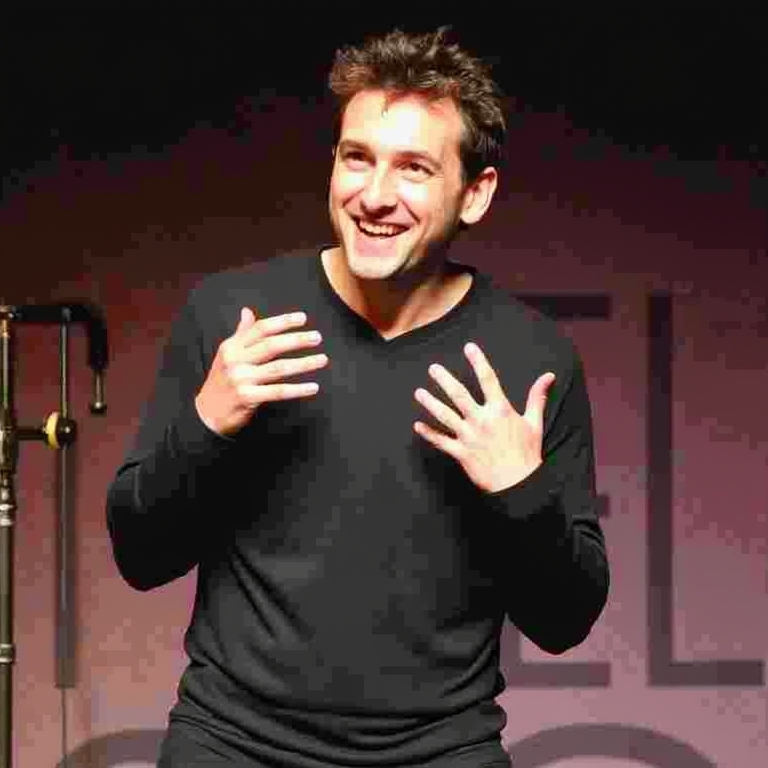Improvisation, or improv, is one of the most powerful tools an actor can develop. It encourages spontaneity, enhances creativity, and improves an actor’s ability to respond truthfully in the moment. The best improvisations involve emotions.
Whether used in comedy, drama, rehearsals, or auditions, improvisation helps actors break free from rigid performances and fully engage with their scene partners and the world of the story.
Great actors such as Robin Williams, Viola Davis, and Meryl Streep have used improvisation to create unforgettable performances. In this article, we’ll explore the importance of improvisation in acting, its benefits, and different improvisation techniques that actors can use to enhance their craft.
There are fun exercises that are improvisations. However, the most serious improvisations will also work an emotional element within your acting.
1. What is Improvisation in Acting?
Improvisation in acting is the ability to perform without a script or predetermined dialogue. Actors rely on their instincts, imagination, and reactions to create authentic, spontaneous performances.
Improvisation can be used in various ways:
In theater: Actors may perform entire improv shows (like those by The Second City or UCB).
In film and TV: Directors sometimes encourage actors to improvise lines or reactions for realism.
In rehearsals: Actors use improv exercises to explore characters, relationships, and emotional depth.
At its core, improvisation is about trusting the moment and responding truthfully—skills that are essential for all actors.
2. Benefits of Improvisation for Actors
Improvisation is more than just a fun exercise—it’s a skill that enhances multiple aspects of an actor’s craft.
Increases Spontaneity and Creativity
- Improv forces actors to think quickly and creatively.
- It prevents performances from feeling stiff, over-rehearsed, or predictable.
Enhances Listening and Reacting Skills
- Acting is about reacting truthfully to what is happening in the scene.
- Improvisation trains actors to listen actively and respond naturally.
Reduces Fear of Mistakes
- Many actors struggle with fear of failure or self-consciousness.
- Improv teaches actors to embrace mistakes and adapt confidently.
Deepens Emotional Authenticity
- Improvised moments often feel more raw and real than scripted ones.
- Many directors encourage improv to capture genuine emotional responses.
Strengthens Emotional Development
- Actors can explore different aspects of their own personality, voice, and physicality.
- Improv helps actors discover new spontaneous choices that may not have been in the script.
With these benefits in mind, let’s explore some of the most effective improvisation techniques that actors can use.
3. Key Improvisation Techniques for Actors
1. The Moment Before (Creating Context)
This is the basics in many trainings of improvisation and acting. An Actor must know work off of the moment before. A great improv scene doesn’t start from nothing—it begins with an actor understanding what happened just before the scene started.
How It Works:
- Before starting a scene, ask yourself:
- Who am I?
- Where am I?
- What just happened?
- What do I want?
- Example: If a scene starts with someone knocking on a door, imagine why they are there (e.g., Are they an old friend? A debt collector?).
Why It’s Useful:
- Prevents aimless or confusing scenes.
- Helps actors enter a scene with specificity and intention.
2. Meisner Door and Activities (Improvise Expressiveness)
In this exercise, actors communicate using reasons to knock and activities to do. The goal is to find the undercurrent of the acting scene. Improvisations are set up so that you are exploring on an emotional level.
How It Works:
- At least Two actors enter into the improvisation. One by knocking at the door, the other is already doing an Acting activity (The goal is to have dramatic improvisation – completely unscripted).
- The challenge is to express emotion, intent, and meaning using body language, tone, and expressions in unscripted ways.
Why It’s Useful:
- Helps actors break free from over-reliance on scripted dialogue.
- Strengthens physicality and emotional expression.
6. Improvised Monologues (Solo Character Exploration)
Actors develop their character’s voice and backstory through spontaneous monologues.
How It Works:
- The actor receives a random prompt (e.g., “You just found out your best friend is a spy.”).
- They deliver a one-minute monologue in character, improvising their thoughts and reactions.
Why It’s Useful:
- Strengthens emotional development.
- Helps actors think quickly and truthfully under pressure.
4. Improvisation in Professional Acting
Improvisation is widely used in professional film, television, and theater. Some iconic moments in acting history came from unscripted, improvised performances.
Famous Improv Moments in Film & TV
- Robin Williams in Aladdin – Much of Genie’s dialogue was improvised.
- Heath Ledger in The Dark Knight – His slow clap in the jail scene was unscripted.
Improv in Theater & Auditions
- Many audition panels ask actors to improvise to test their adaptability.
- Theater companies like The Second City and The Groundlings specialize in improv training.
5. Conclusion: Why Every Actor Should Embrace Improv
Improvisation is an essential skill for actors. It enhances creativity, spontaneity, emotional truth, and collaboration—all of which are necessary for powerful performances.
By practicing techniques like “Yes, And,” Status Games, Emotional Rollercoaster, and Improvised Monologues, actors can build confidence and develop more dynamic, authentic performances.
Whether you’re in a scripted play, a high-stakes film set, or just honing your craft, improvisation will help you become a more fearless, present, and compelling actor.
Summary
Working emotion in Improvisation is the key to building into being believable.

